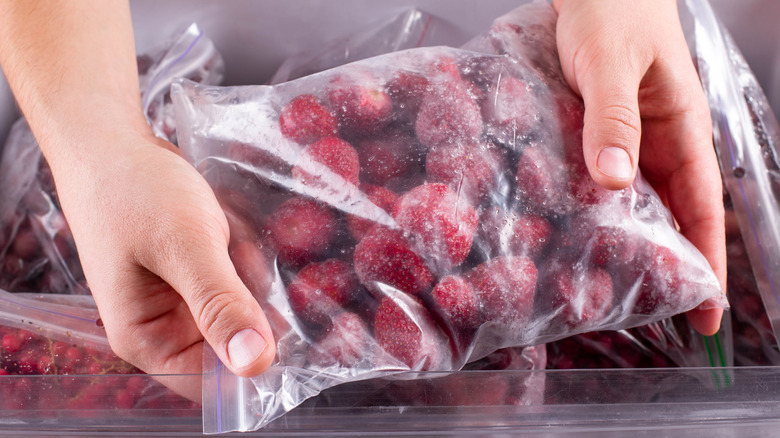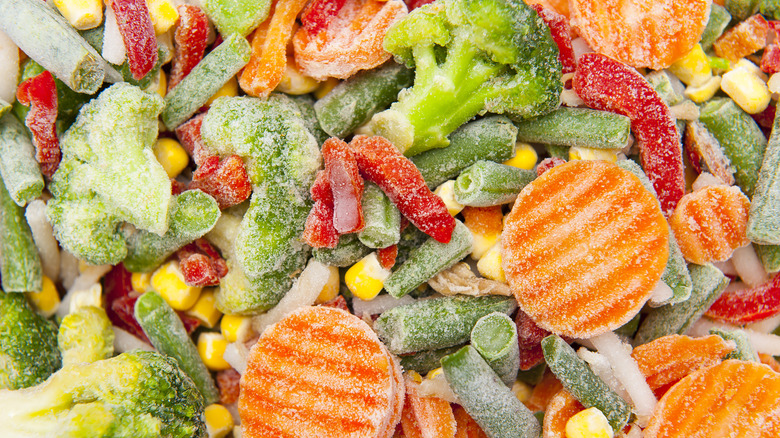Should You Wash Frozen Produce From The Grocery Store?
When you buy fresh produce from the grocery store, a farmers market, or a local roadside stand, you probably already know that you should be washing these foods under running water to remove any dirt or bacteria before eating or incorporating them into your cooking. But what about frozen produce that you buy from the supermarket? Do you still need to wash fruits and vegetables even after they have been frozen? The answer is not entirely clear.
Of course, it is always better to be safe than sorry when it comes to protecting yourself against possible sources of contamination and food-borne illness. Some people advise washing frozen produce even though it has generally already been washed prior to packaging. To do so, place the frozen fruit or veggies into a colander and run them under cool water.
According to the American Frozen Food Institute, frozen fruit is safe to eat directly out of the bag because it has been washed, and its high acidity and sugar content can prevent or mitigate bacterial growth. On the other hand, due to their lower acidity and sugar content, frozen vegetables are less likely to reduce the growth of harmful bacteria. For optimal safety, prepare them based on package cooking instructions to ensure the food reaches sufficiently high temperatures.
Eating unwashed frozen produce is generally safe
In a test of 300 samples of eight different types of frozen produce, the nonprofit consumer advocacy organization Consumer Reports didn't discover any harmful bacteria in the products. Despite these findings, the outlet notes that since 2016, there have been more than 20 recalls of frozen fruits and veggies linked to potential contamination from bacteria such as Listeria and E. coli.
The USDA states that eating packaged fruits and vegetables labeled as "pre-washed" or "ready-to-eat" without additional washing is safe. There is no harm in washing frozen produce again as an extra precaution, as long as you ensure the food doesn't touch surfaces that have come into contact with raw meat, poultry, or seafood, in order to avoid cross-contamination. Keep in mind that some recipes call for frozen produce, which may no longer be the case if you rinse it for too long.
Not everyone has access to fresh produce, so frozen fruits and vegetables can provide another way to get the essential nutrients people need in their diets. While you don't necessarily have to wash them, it's important to be aware that frozen produce contamination recalls do occur, and rinsing adds another layer of protection against foodborne pathogens.

